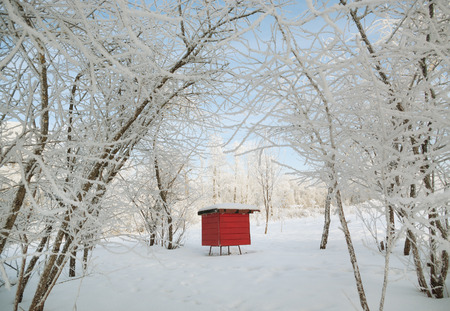WSU Breeding Bees to Better Brave The Cold
December 16, 2016
Bee Colony Collapse, Health, Honey Bees
Cold winters can cause honeybees to die out just as much as other factors like parasites and diseases. Recently, a group of researchers at Washington State University (WSU) have made it their mission to help bees combat their harsh winters. Like other animals that hibernate, honeybees winterize until spring. They often huddle together for warmth in their hives, packing tightly together and vibrating their wing muscles to maintain warmth.
Winter is a tough time for the world’s most important pollinator, so the WSU team are breeding bees that have a better chance of surviving winter and making it through spring better than other bees. Brandon Hopkins, a WSU researcher, says that he and his team are “selecting stocks that tolerate cold weather.” There are other factors as well, such as breeding bees that are more resistant to common diseases and parasites often found within colonies. "The best bee here in Washington may not be the best bee for Florida,” commented Hopkins while assuring they are not trying to make the “perfect bee.” Their goal is just to help protect the bee population.
Hopkins points out that bees are undervalued and are an asset to both crops and the livestock that eat crops. The team’s goal is to make sure bees can continue to do their job and serve as pollinators as long as possible. So far, the program has helped to incorporate controlled climates for better overwintering. The success of indoor wintering has already shown results and have encouraged some beekeepers to build facilities of their own.
With interest being dedicated to bees and the study of their health, the WSU researchers are pushing to get their own building solely for bee research. The total cost of the facility is expected to be $16 million, with their goal being to raise the money from private donations. The 15,0000 square foot research facility will include a diagnostics lab, a cryogenic germplasm repository, a molecular lab, controlled atmosphere rooms, and screened observation areas for the public to watch how bees operate. The facility will help add to the space and avoid research shortages while providing more classrooms and instructional facilities. The researching staff also hope to host visiting scientists from around the world to discuss latest techniques in this facility.
"It feels great because we're doing remarkable things here at WSU,” said Hopkins regarding the bee wintering research. And, as per Steve Sheppard, a fellow WSU entomologist, having the center will “provide resources for honeybee research equal to those anywhere in the world” and they will do even more remarkable things for bees.
Copyright: ratikova / 123RF Stock Photo


.jpg)



